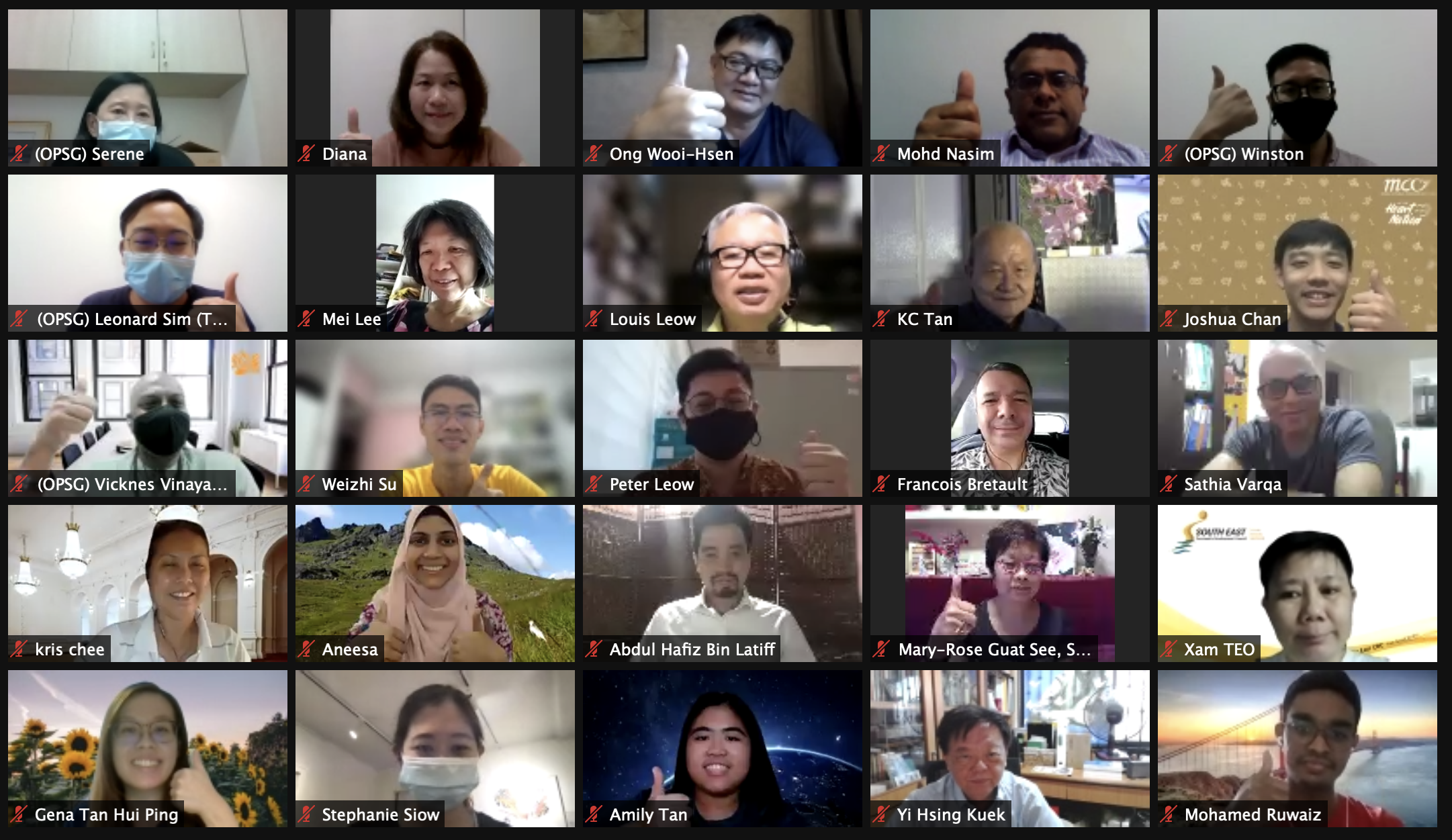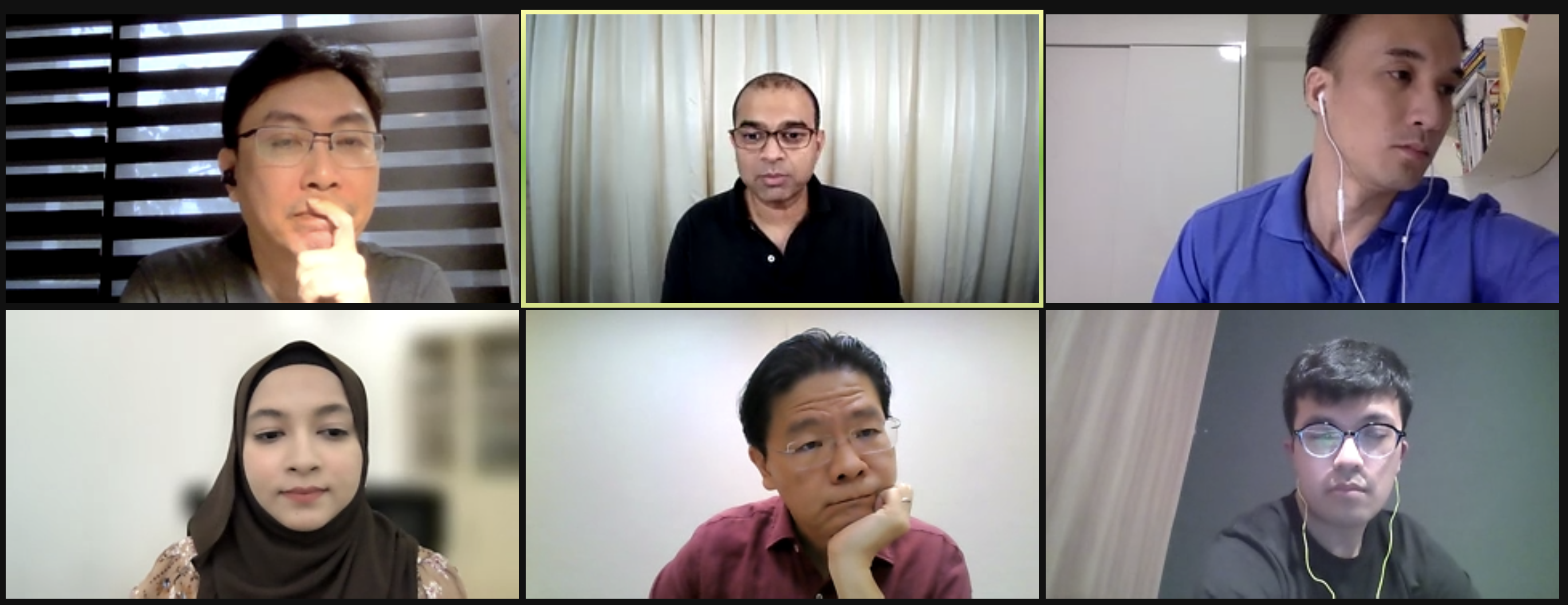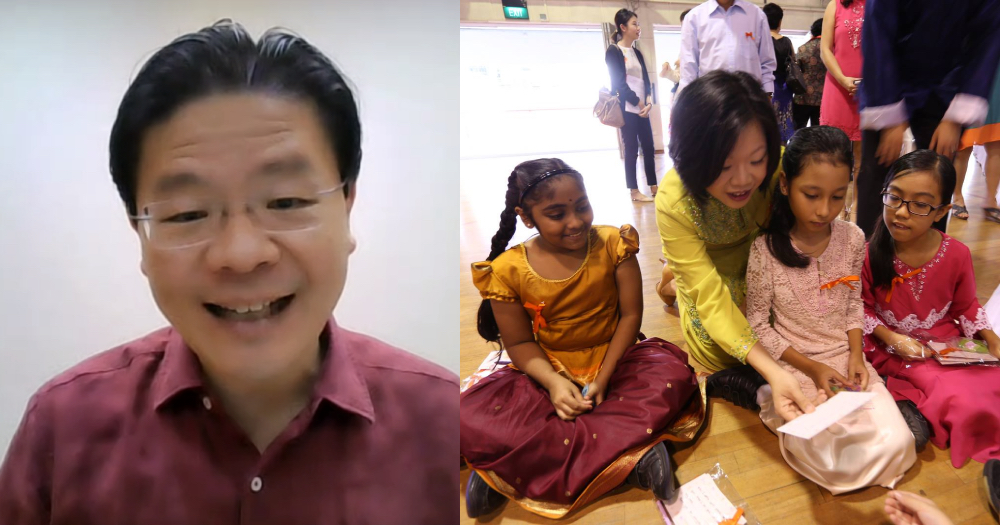Follow us on Telegram for the latest updates: https://t.me/mothershipsg
Minister for Education (MOE) and Second Minister for Finance (MOF) Lawrence Wong spoke to participants at the sixth and final edition of the Regardless of Race Dialogue.
During the dialogue, participants were cautioned against taking racial harmony in Singapore for granted.
Singapore has worked hard towards building "a multiracial nation where every community, majority and minority, can integrate fully, yet have maximum space to maintain their identities and practise their faiths and customs, and way of life", the participants were told.
"The situation in Singapore is tranquil and calm today but it’s easy for racial tensions to flare up and for our ethnic relations to come under severe strain".
Importance of maintaining common spaces
The importance of maintaining common spaces that provide opportunities "to interact with people from different races and religions, to get to know one another and socialise together", participants were told.
Activities that bond people include eating, working, playing, studying together, living next to each other, and celebrating one another's festivities.
Two analogies used by founding leader and first Foreign Minister S Rajaratnam to describe the "primitive emotions" of race were highlighted: Racialism was compared to "a wild and hungry beast" and "tuberculosis":
"We must ensure this beast 'remains locked in its cage so that eventually it will waste away and die'... We all inhale tuberculosis germs. If you are healthy, your system is strong, they do no harm. But the moment the system runs down, then these germs assert themselves.”

About 110 participants took part in the virtual dialogue session on Saturday, Apr. 17, organised by OnePeople.sg, the national body promoting racial harmony, youth-driven interfaith initiative Roses of Peace, and supported by Mothership.sg.
Panellists from previous sessions
The panel of the dialogue session, moderated by OnePeople.sg chairman Janil Puthucheary, comprised of panellists from past engagements.
They included Leonard Lim, head of public policy and government relations, Southeast Asia and Taiwan at Zoom; Fahima Farha, vice-president of Roses of Peace; Adrian Heng, consultant for business strategy, communications and marketing; and Hafez Sorouri Zanjani, a grassroots leader and youth advocate at OnePeople.sg.

Some of the questions raised during the Q&A session included equipping teachers with skills to impart an inclusive mindset and outlook on race relations to students, external influences, such as social media and racial issues in other countries on Singapore, and reconciling our individual identities with the national one as Singaporeans.
Education on race relations
This brought up the reminder that teachers are also humans who are imperfect with unconscious biases and specific mindsets, as well as the generation gap between students and teachers.
The introduction of "SkillsFuture for Educators" initiative helps them to facilitate appropriate race relation discussions with students and addressing concerns.
One participant suggested that parents could play a more active role in shaping young minds, especially between the ages of one to three.
Upon children's entry into the school system, teachers could further develop such critical thought on such topics.
One participant said it is important to educate one's self as an individual regardless of education background.
She shared her experience of working with students from a more racially-homogenous education background, such as SAPs, madrasas, mission schools, who were able to recognise the lack of diversity in their school community and took responsibility to learn more about other races and religions outside the classroom.
Furthermore, other participants recognised the efforts that SAP schools have done to enrich the school environment by running Malay conversation classes and collaborating with neighbourhood schools or madrasas to build relationships and common understanding amongst the different races.
External influences via social media
One participant emphasised the double-edged sword of social media that allows positive and constructive engagement and information dissemination.
However, it can also be misused to spread racial discrimination.
He cited the two recent cases of radicalised individuals who planned attacks against the Muslim and Jewish communities respectively, after watching online videos promoting such racial violence.
It was noted that external influences are always present together with and our constant exposure to ideas from different religions and backgrounds, as well as observations of racial incidents happening elsewhere.
The topic of intersectionality was brought up and it was recognised that injustices can happen due to intersections in different identities.
While racial prejudices need to be corrected, it was said, the Black Lives Matter movement is an American model that differs from the Singaporean context.
It was agreed by some participants that Singaporeans need to consider the local context and the importance of maintaining dialogue and conversation about such issues that allows voices to be heard in order to further improve race relations.
Racial and national identities
Instead of a melting pot, Singapore is likened to a rojak with different ingredients having a unique taste as our unique identities create synergy when brought together.
While there are countries that are banning the tudung without consulting public opinion, Singapore is a country that is willing to have conversations about it, one participant said.
In response, it was proposed that Singapore is a small country with a short history and the ability to discuss about discarding ethnic identity attests to this Singaporean identity that continues to grow stronger.
However, the belief there is value in our ethnic identities while having a common cultural identity was mooted:
"We should be proud of that we can hold on to our roots which link us back to our histories to give us a sense of belonging, and yet at the same time forge a common cultural identity that is unique and distinctive and binds us as one people "
The dialogue was organised by OnePeople.sg and youth-driven interfaith movement Roses of Peace in partnership with Mothership. A previous dialogue in partnership with OnePeople.sg and Mothership can be found here:
Top right image by MOE Facebook.
If you like what you read, follow us on Facebook, Instagram, Twitter and Telegram to get the latest updates.

